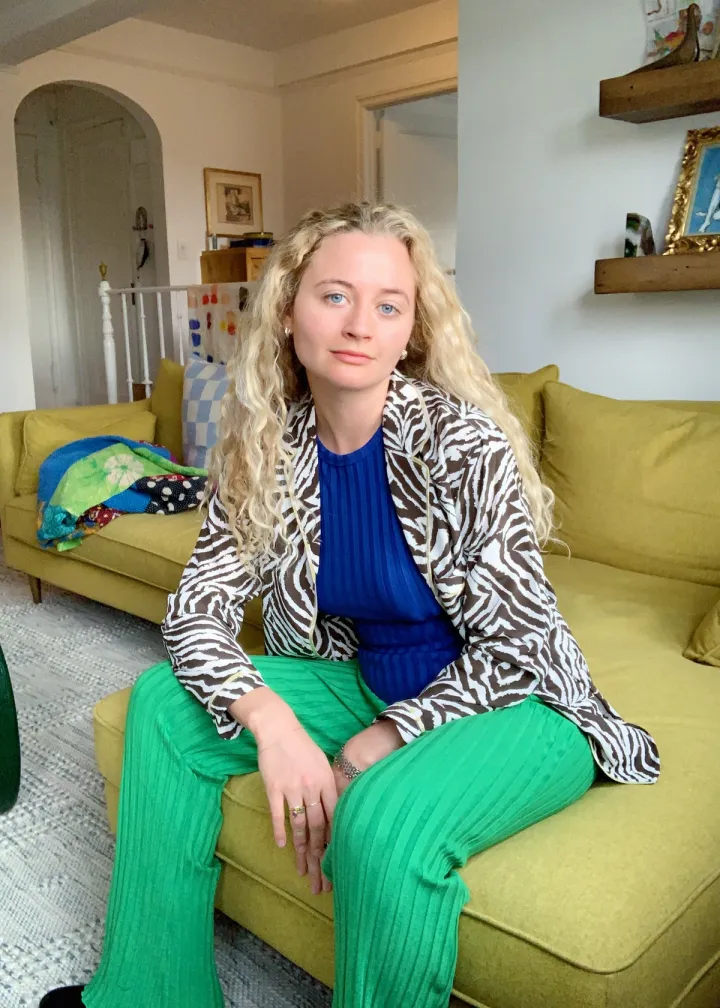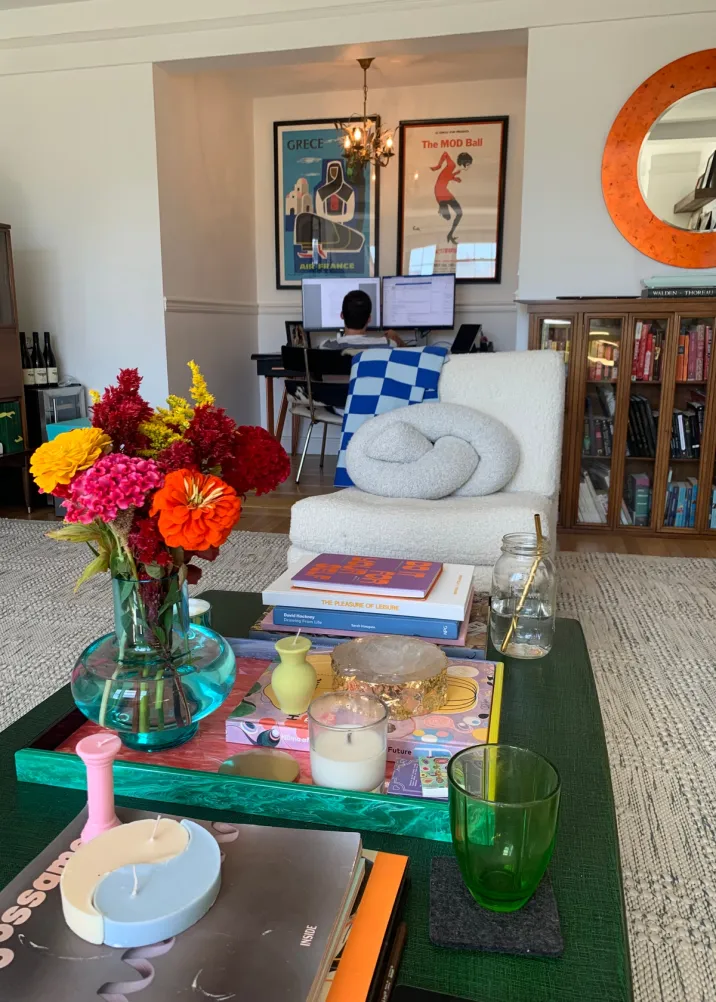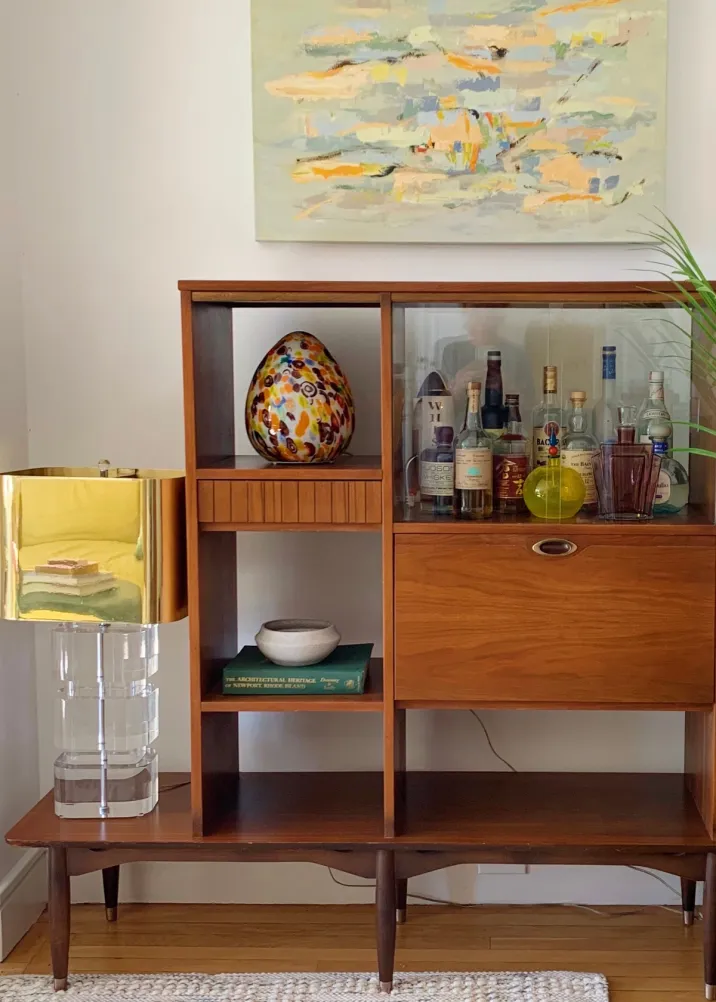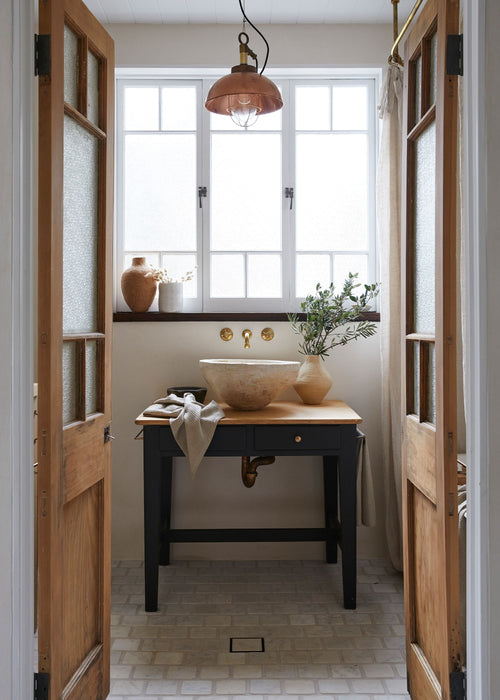
How I Decorated My Last Apartment With My Future Apartment in Mind
Here’s how to invest in decor when you know your rental is only temporary.
In an ideal world, the decor and furnishings you buy for a rental are like a cat with nine lives – eternally relevant from one apartment to the next. But deciding how much time and money is worth investing in rental decor is not always the most straightforward calculation. You know you won't be staying in your current place forever, but more often than not, you'll be there long enough (sometimes years!) to justify the desire to make it look and feel like a thoughtfully curated space.
As a New York resident who has lived in multiple different rentals, I’ve waged this internal debate on numerous occasions, yearning for a crystal ball to divulge the floor plans for every one of my hypothetical subsequent apartments so that I can compare it to my current one and plan accordingly. Unfortunately, I haven’t figured out how to predict the future just yet, but in the meantime I’ve developed some simple strategies for maximizing the relevance of my decorating decisions within the constraints of New York City rental hopping. Below, I’ve outlined a handful of pointers based on the approach I took when sourcing decor for my last apartment, all with the intention of having it live as many lives as possible.

1. Make a Very Simple Color Moodboard
Remember in elementary school when someone’s favorite color was an absolutely defining personality trait, possibly even the basis upon which you decided to be friends? Well, that’s the kind of energy I recommend tapping into before you embark on a rental apartment decorating journey. Make a very simple mood board with four or five of your long-standing favorite colors (if you don’t know what they are offhand, try looking at your wardrobe to see what colors you tend to gravitate toward there) – it can even be helpful to use a color palette generator like Coolers to flip through different shades of your favorite colors so that you can pinpoint them more specifically.
The idea here is to make your decor sourcing process a bit more intentional and longevity-oriented by going into it with colors in mind that you know you’re historically drawn to. That way, you’re more likely to avoid impulse shopping for things that catch your eye in the moment or that speak to a temporal mood, instead cultivating a color story that has already spoken to you in other contexts over the course of many years. If you’ve consistently gravitated toward these particular colors in your wardrobe or elsewhere, you’re likely to continue loving them in your home, whether in your current apartment or the next.
3. Play Around With Different Textures, Shapes, and Types of Wood
Since I wasn’t scratching my maximalist itch with lots of patterns, I did so with different textures, shapes, and wood varieties instead. It’s kind of the best of both worlds – visually interesting but still really versatile. Some textures I used in my last apartment and that you might want to think about in your own decor sleuthing include: lacquered wood, knubby carpets, velvet pillows, and a bouclé armchair. Shapes included: a wave-shaped mirror, a waterfall coffee table, and an angular, asymmetrical desk. As for wood types? Teak, mahogany, and burl wood all have really different looks that complement each other nicely. Sourcing a vintage burl wood chest of drawers for my last place was my way of sneaking in a bit of pattern, albeit a subtle one, due to the intricate whorls in burl wood’s grain.

4. Buy Vintage Furniture Whenever Possible
Not only can you often get better deals on vintage furniture, but vintage items also tend to be constructed with better, higher-quality techniques and materials than many of their contemporary counterparts, meaning that they last longer and hold up better over time. That’s why investing in vintage furniture for your current apartment can also be an investment in your future apartment, since the pieces you’re buying now are likely to still be in great shape by the time you’re relocating.
By spending money on – for example – a beautiful chest of solid wood drawers that was probably handmade (and is held together with dovetailing instead of nails) and that you know has already lasted 100 years, you’re prioritizing longevity just as much as aesthetics. The fact that something was in style a century ago and still feels fresh now is also a testament to its timelessness, which is reassuring when you’re spending money on something that you want to love for decades.
5. Don’t Strive for Perfection
My not-so-hot take is that trying to make every room in a rental perfectly cohesive is a waste of time. As soon as you move to your next apartment, which you inevitably will, you’ll have to rearrange things to suit the parameters of a new space. Instead of hyper-curating around a singular theme, focus on building a collection of furnishings you love individually – not just because they go with other stuff you have, but because they’re special and compelling in their own right. That might mean your space looks and feels a little bit less cohesive, but if you ask me, the most interesting apartments never do anyways.
Enjoyed This?
Here are some more tips for creating the dreamiest rental apartment.










